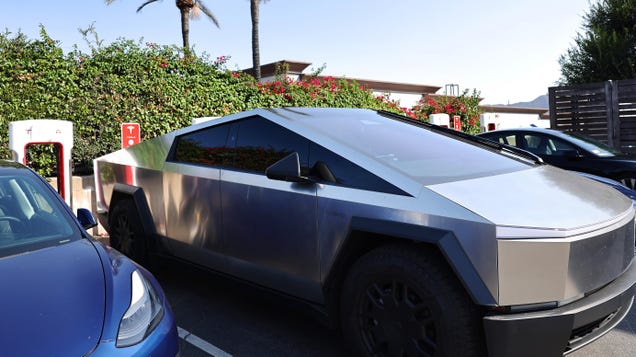Understanding the Recent Tesla Cybertruck Recall: What You Need to Know
The automotive industry is no stranger to recalls, but the frequency and nature of these recalls can significantly impact consumer trust and safety. Recently, the National Highway Traffic Safety Administration (NHTSA) announced the fifth official recall of the Tesla Cybertruck, primarily focusing on a delayed rearview camera image when shifting into reverse. While this may seem like a minor inconvenience, it raises important questions about vehicle safety, compliance, and consumer awareness.
The Implications of a Delayed Rearview Camera
At first glance, a delayed rearview camera feed might not appear to be a critical issue. However, this malfunction can have serious implications for driver safety. The rearview camera is a crucial component for avoiding collisions while reversing, and any delay can lead to accidents, particularly in crowded urban environments or when maneuvering in tight spaces. According to a study by the Insurance Institute for Highway Safety (IIHS), vehicles equipped with rearview cameras have significantly lower rates of backing crashes compared to those without. Therefore, ensuring that these systems function correctly is essential for overall road safety.
Compliance with Safety Standards
The recall highlights Tesla’s ongoing struggle to maintain compliance with federal safety standards. The NHTSA’s role in regulating vehicle safety is critical, and any non-compliance can lead to significant consequences for manufacturers, including fines and increased scrutiny. Tesla’s proactive approach in addressing these issues through recalls demonstrates a commitment to safety, but repeated recalls may also raise concerns among consumers about the reliability of their vehicles.
Consumer Response and Trust
The frequency of recalls can influence consumer perception. A recent survey conducted by J.D. Power found that 60% of respondents expressed concern about the safety of vehicles with multiple recalls. For Tesla, a brand that prides itself on innovation and cutting-edge technology, maintaining consumer trust is paramount. The company must effectively communicate the reasons behind these recalls and the steps being taken to rectify the issues. Transparency in addressing safety concerns can help mitigate negative perceptions and reinforce consumer confidence.
What Should Tesla Owners Do?
For current Tesla Cybertruck owners, it is essential to stay informed about recalls and safety updates. The NHTSA provides a comprehensive database where consumers can check for recalls specific to their vehicle identification number (VIN). Additionally, Tesla typically communicates directly with owners regarding necessary repairs and updates. It is advisable for owners to promptly address any recall notices to ensure their vehicle operates safely and complies with all regulations.
Looking Ahead: The Future of Vehicle Safety
As technology continues to evolve, the automotive industry faces new challenges in ensuring vehicle safety. Advanced driver-assistance systems (ADAS), including rearview cameras, are becoming standard features in many vehicles. However, these systems must be rigorously tested and maintained to prevent malfunctions. Manufacturers like Tesla are at the forefront of this technological shift, but they must also prioritize safety and compliance to foster consumer trust.
In conclusion, while the recent recall of the Tesla Cybertruck may seem like a minor technical issue, it underscores the importance of vehicle safety and compliance in the automotive industry. As consumers, staying informed and proactive about vehicle recalls can help ensure a safer driving experience. Tesla’s commitment to addressing these issues will be crucial in maintaining its reputation and consumer trust in the long run.

